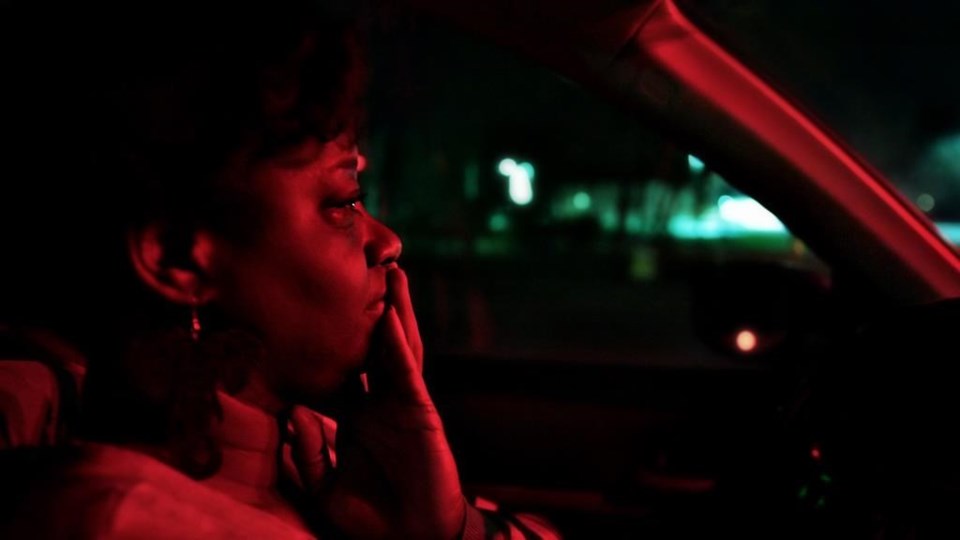MONTREAL — A documentary on cyber violence opening Friday in Toronto follows four women who recount their stories of being attacked, denigrated and threatened because they choose to speak their minds.
“Backlash: Misogyny in the Digital Age” explores the online violence and hatred faced by women and girls across the world. The French-language version of the film, directed by Léa Clermont-Dion and Guylaine Maroist, premièred in the fall in Quebec to critical acclaim and broke box office records in the province for a documentary film.
Maroist says the goal of the documentary, produced by La Ruelle Films, is to bring awareness to online misogyny and provide a voice for victims, who she says have few recourses to turn to. She says the idea for the film came after Clermont-Dion experienced online threats in 2015.
“I think in the past seven years, we have witnessed the growth of this phenomenon," Maroist said in a recent interview. "In 2015, we weren’t talking about cyber violence. But now, unfortunately, it has become a very important issue in our society."
One of the four women featured in the documentary is Laurence Gratton, a young elementary school teacher from Quebec who was harassed and threatened on social media for five years by a man who turned out to be a former classmate. In the film, Gratton says that in university, she accepted a friend request on Facebook from a profile claiming to be a young woman. Gratton says she did not know the person but assumed she had met them and forgotten.
Soon after, the person began leaving degrading Facebook comments about her physical appearance. From there, the harassment only escalated. The person demanded that she stop raising her hand to ask questions in class and called her a moron that should not be studying to be a teacher.
One of the messages said, “You know that you are ugly, and that is why guys don’t want you.”
The other three women featured in the film are Laura Boldrini, the most harassed politician in Italy; Kiah Morris, a former Vermont state representative for the Democratic party who was forced to resign because of persistent online abuse; and Marion Seclin, a Paris-based actor and YouTuber who received more than 40,000 sexist online messages and was subjected to rape and death threats.
“We want to raise awareness on this issue. We wanted to show that these different women coming from different places in society and different ages were experiencing the same thing,” Maroist said.
In the documentary, Gratton is told by Montreal police that there is nothing that they can do to help her.
“Police officers don’t have the training to deal with cyber violence, even less when it comes to anonymous accounts on social media. They don’t know how to help the victims,” Gratton said in a recent interview.
Maroist said online misogyny is preventing women from entering public-facing careers.
“This impacts our democracy because now young women are avoiding going into politics because they don’t want to deal with online harassment," she said. "I taught last year at UQAM (Université du Québec à Montréal), and a young woman told me that she wanted to go into politics but decided to go into communications instead because she didn’t want to expose herself to that violence."
In December, Maroist and Clermont-Dion presented an online petition with about 30,000 signatures to the Quebec legislature, asking the government to take specific actions to address cyber violence, including to require that police officers follow a mandatory online-harassment training program.
They also want the Quebec government to pressure Ottawa to adopt a law forcing social media companies to crack down on hate speech on their platforms or risk steep financial penalties.
“The Quebec government was very receptive to our message," Maroist said. "Education is also very important, and that is why we launched the website along with the campaign." The website stoplescyberviolences.ca, which is currently only available in French, provides information and resources about online misogyny and harassment. Maroist said that they are hoping to raise funds to make an English version of the site.
“It’s essential for me to talk to my young students about cyber violence," Gratton said. "One of the most important aspects of this film is educating our youth. It’s important that they know what cyber violence is, especially since they grew up with social media. Without education and awareness, this problem will persist."
The film will be screened at the Hot Docs Cinema in Toronto, with screenings in other cities to follow.
This report by The Canadian Press was first published Jan. 13, 2023.
—
This story was produced with the financial assistance of the Meta and Canadian Press News Fellowship.
Marisela Amador, The Canadian Press



